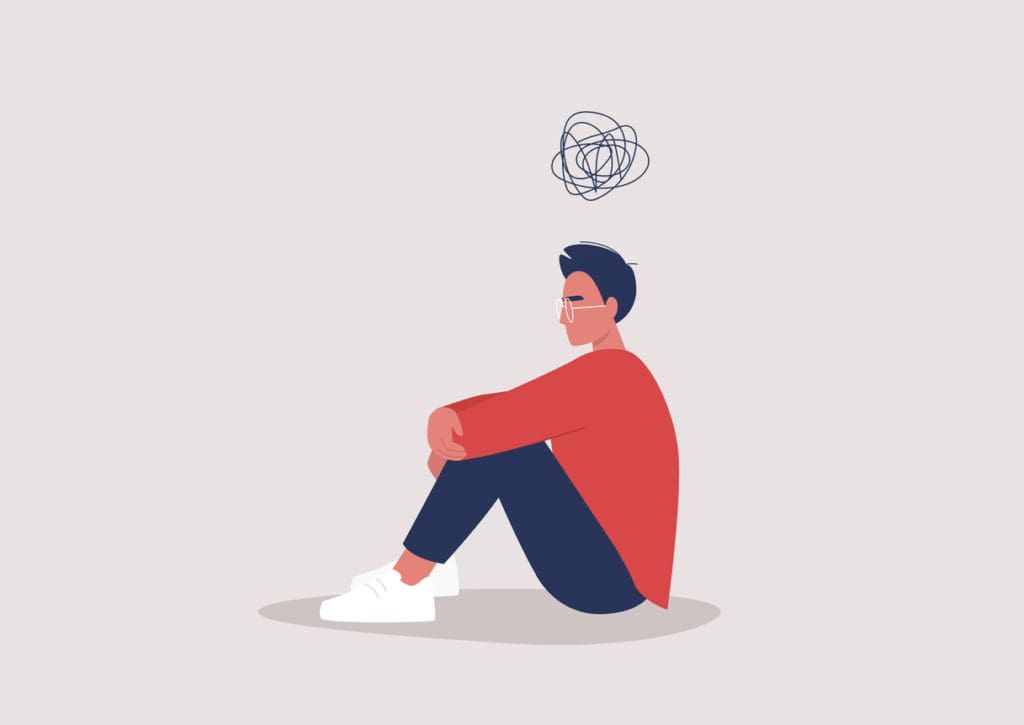
How to Explain Anxiety
Anxiety is complicated. It manifests itself differently in everyone. For some, it affects their physical health and creates overwhelming feelings of energy or restlessness. Others may feel emotionally drained, and some may not even notice these feelings. Because it manifests so differently from person to person, it can be difficult explaining anxiety to others. Below, we’ll discuss how to explain anxiety in a way that accurately represents how you’re feeling and what you may need in terms of support.
Explain Your Physical Symptoms
One of the first steps to explaining anxiety to others is to describe what it feels like physically. As anxiety levels rise, that tension stores itself throughout the body and creates physical reactions such as:
- Racing heart
- Sweating
- Muscle stiffness
- Trembling or shaking
- Headaches
- Chest tightness
- Stomachaches
- Fatigue
When these symptoms flare up, it can feel like you can’t breathe, think straight, or see clearly. These feelings may worsen as the symptoms themselves can trigger additional anxiety, sending you into a vicious spiral.
It’s important to explain to your friends and family the specific physical reactions you have. For example, you could say: “When I get anxiety, I get really restless, my heart starts to pound, and I feel shaky.” Helping your loved ones recognize your physical symptoms can help them understand how to support you.
Talk about Your Emotions and Triggers
While anxiety itself is a feeling, it also produces a whole storm of other emotions. Some of the most common include:
- Nervousness
- Feeling overwhelmed
- Worry
- Fear or terror
- Uneasiness
- Jumpiness
- Feeling on edge
- Dread
- Distress
- Apprehension
Depending on how high your anxiety is, you may not be able to pinpoint what you’re feeling. However, attempting to explain your emotions can help your family and friends better understand your anxiety.
Equally important is to explain what, if any, triggers you have. For example, if your anxiety always rises when you fly or are in social situations, communicate that to your loved ones. Helping them know what causes your anxiety to rise can ensure you’re not put into those situations—or help you all plan ahead for situations you know will be difficult.
Talk about Treatment
When you’re explaining anxiety to others, and you feel comfortable doing so, talk about treatment options or coping mechanisms that work for you. Not only will this educate them on the type of support you need, but it will also show it’s not something you just “get over.”
For example, if you’re taking medication to manage anxiety, you could explain: “I’m taking an antidepressant which helps me to keep my anxiety symptoms under control.” If you’re in therapy, you could say: “I see a therapist regularly who helps me to understand my triggers and how to manage them.”
Finally, if you feel comfortable, explain what you need from your loved ones when you feel anxious. For some, physical touch can help ease physical symptoms, while others benefit from talking about their feelings. Knowing what you need can help them know how to better support you on the days your anxiety is really high.
Get Help from TMS Clinics of Canada
If you’ve been struggling to manage your anxiety, TMS Clinics of Canada can help. Each of our well-trained staff members is highly trained to help you not only recognize your triggers but manage them. We also offer treatment options for people who have not had success with therapy or medication. Take our free assessment today so you can start living a happier, worry-free life.
Click here to take our self assessment test or request a complimentary consultation today by clicking here.
